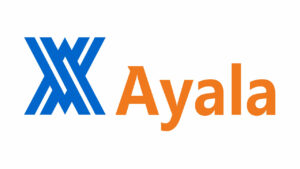Inflation likely to remain within BSP’s 2-4% target range for most of 2024

By Keisha B. Ta-asan, Reporter
HEADLINE INFLATION is seen to remain mostly within the 2-4% target range this year, which may prompt the Bangko Sentral ng Pilipinas (BSP) to begin policy easing, according to analysts.
Makoto Tsuchiya, an economist from Oxford Economics, said inflation will likely settle within the BSP’s target range in the coming months due to base effects.
“Inflation will then edge up again during the second quarter also due to base effects, but overall, we think the annual inflation will remain within the target in 2024,” he said in an e-mail interview.
Preliminary data released by the Philippine Statistics Authority (PSA) on Friday showed headline inflation slowed to 3.9% in December from 4.1% in November and 8.1% a year ago.
This is the first time inflation hit the 2-4% target in nearly two years. December’s inflation print was also the slowest reading in 22 months or since 3% in February 2022.
However, full-year inflation stood at a 14-year high of 6% in 2023. This was above the 5.8% in 2022, marking the second straight year that average inflation breached the BSP’s 2-4% target band.
According to Mr. Tsuchiya, the slowdown in December inflation was due to lower food and energy prices.
“Among food items, rice prices edged up given continued supply-side issues, but this was more than offset by lower vegetable prices, which declined on the year. Energy prices further led the disinflation, likely due to lower global fuel prices,” he said.
Based on PSA data, the index for food and non-alcoholic beverages slowed to 5.4% in December from 5.7% in the previous month. Food inflation alone went down to 5.5% in December from 5.8% in November and 10.6% a year ago.
However, rice inflation accelerated to 19.6% in December from 15.8% in November. This was the highest print since the 22.9% recorded in March 2009.
The slower December inflation print can also be attributed to the slower growth in prices of housing, water, electricity, gas and other fuels index.
“Our long-held position that headline inflation would return to the BSP’s 2-to-4% target range by the end of 2023 — despite the surprise headline resurgence in August and September — has officially been vindicated,” Pantheon Macroeconomics Chief Emerging Asia Economist Miguel Chanco said in a note.
He said core inflation, which eased to 4.4% in December from 4.7% in November and 6.9% in December 2022, will likely continue to slow as well in the coming months.
“Overall, we continue to believe that annual average inflation will drop sharply to 2.8% this year, comfortably below the BSP’s 4.2% projection, opening the door for the 100-basis-point (bp) in policy rate cuts we expect to see,” he said.
UPSIDE RISKSHowever, upside risks to the inflation outlook remain, Mr. Tsuchiya said.
“Weather disturbance will continue, while geopolitical uncertainty could swing commodity prices up and down. We observe other inflationary pressures such as transport fare hikes and minimum wage hikes, but we don’t think they will materially change the picture,” he said.
The El Niño weather phenomenon is seen to enter a stronger phase in January, persisting until May, which would likely lead to weaker agricultural output and food price increases in the country.
In September 2023, the Land Transportation and Regulatory Board raised the minimum fare to P13 for traditional jeepneys and P15 for modern jeepneys. Wage hikes were also implemented in some regions last year.
“More important is the inflation expectation, but here too we know the BSP is highly cautious, so we believe any unwanted inflationary development will be tamed quickly,” Mr. Tsuchiya added.
Meanwhile, the Metrobank Research and Business Analytics Department said it sees average inflation to hit 4.3% this year, slower than the 6% full-year average in 2023, but still above the 2-4% target.
“Our above-target baseline forecast for 2024 remains largely driven by the risk of upward pressure on rice prices, given that exporting countries, particularly, Thailand and Vietnam, have cited that dry spells and flash floods last year have led to a forecasted fall in crops through to 2024,” it said.
Metrobank Research also sees headline inflation to pick up to above 2-4% from second quarter onwards.
Still, dissolving price pressures amid easing core inflation will likely prompt the BSP to consider cutting borrowing costs as early as June, the bank said.
“We think that policy rates may not need to be as restrictive as current levels throughout the year, especially if core inflation continues to move lower,” Metrobank Research added.
The BSP has kept its key interest rate steady at a 16-year high of 6.5% since October, after tightening borrowing costs by 450 basis points from May 2022 to tame inflation.
BSP Governor Eli M. Remolona, Jr. earlier said the Monetary Board is not considering any policy rate cuts in the coming months, as inflation should be seen firmly within the 2-4% target range.
The BSP will have its first policy review this year on Feb. 15.




